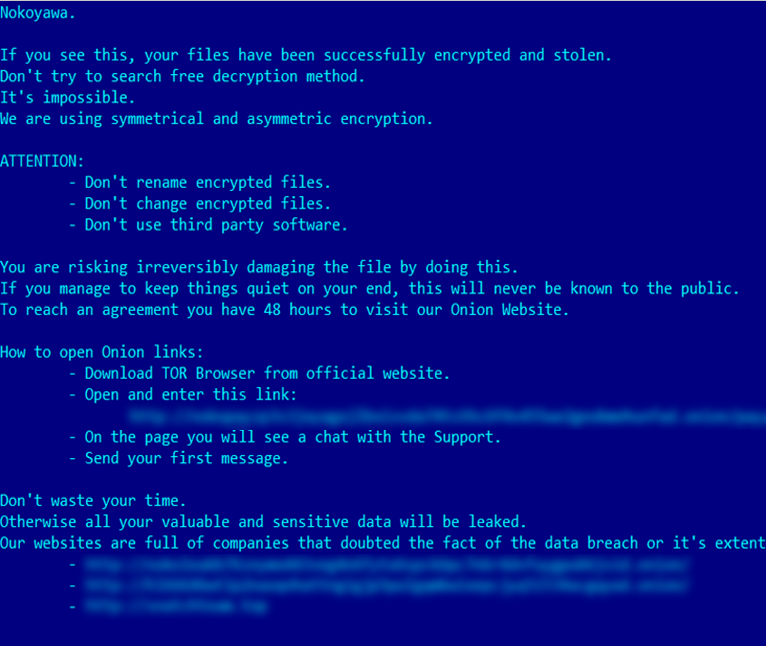Woburn, MA – April 11, 2023: Kaspersky experts have discovered an attack using a zero-day vulnerability in the Microsoft Common Log File System (CLFS). A cybercriminal group used an exploit developed for different versions and builds of Windows OS including Windows 11 and attempted to deploy Nokoyawa ransomware. Microsoft assigned CVE-2023-28252 to this vulnerability and patched it today as part of Patch Tuesday. The threat actor also attempted to execute similar elevation of privilege exploits in attacks on different small and medium-sized businesses in the Middle East and North America, and previously in regions of Asia.
While most of the vulnerabilities discovered by Kaspersky are used by APTs, this one turned out to be exploited for cybercrime purposes by a sophisticated group that carries out ransomware attacks. This group stands out for its usage of similar but unique Common Log File System (CLFS) exploits. Kaspersky has seen at least five different exploits of this kind. They were used in attacks on targets in retail and wholesale, energy, manufacturing, healthcare, software development and other industries.
Microsoft assigned CVE-2023-28252 to the discovered zero-day. This is the Common Log File System elevation of privilege vulnerability which gets triggered by the manipulation of file format used by this subsystem. Kaspersky researchers uncovered the vulnerability in February as a result of additional checks into a number of attempts to execute similar elevation of privilege exploits on Microsoft Windows servers belonging to different small and medium-sized businesses in the Middle Eastern and North American regions.
CVE-2023-28252 was first spotted by Kaspersky in an attack in which cybercriminals attempted to deploy a newer version of Nokoyawa ransomware. Older variants of this ransomware were just “rebranded” variants of JSWorm ransomware, but in the aforementioned attack, the Nokoyawa variant was quite distinct from JSWorm, in terms of its codebase.
 Nokoyawa ransom note
Nokoyawa ransom note
The exploit used in the attack was developed to support different versions and builds of Windows OS including Windows 11. Attackers used CVE-2023-28252 vulnerability to elevate privileges and steal credentials from the Security Account Manager (SAM) database.
“Cybercrime groups are becoming increasingly more sophisticated using zero-day exploits in their attacks,” said Boris Larin, lead security researcher with the Global Research and Analysis Team (GReAT). “Previously it was primarily a tool of Advanced Persistent Threat actors (APTs), but now cybercriminals have the resources to acquire zero-days and routinely use them in attacks. There are also exploit developers willing to help them and develop exploit after exploit. It’s very important for businesses to download the latest patch from Microsoft as soon as possible, and use other methods of protection, such as EDR solutions.”
























